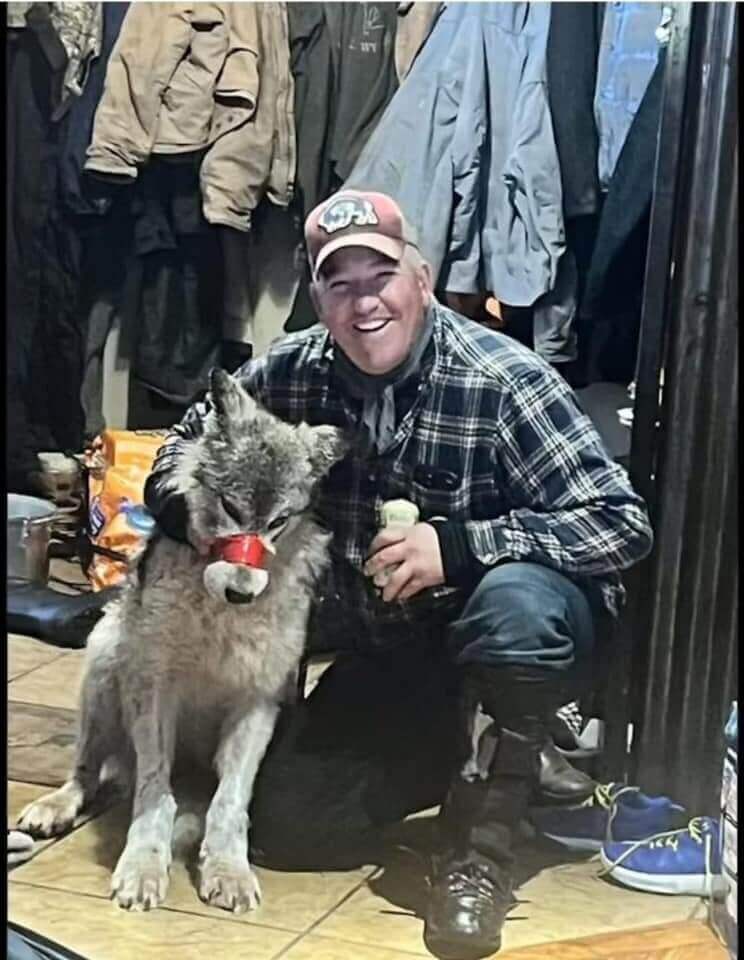On February 29th Cody Roberts ran over a juvenile wolf with his snowmobile, captured the disabled wolf, taped her mouth shut and took her to the Green River Bar in Daniel, Wyoming, where he tortured the young animal for hours before killing it. The incident made international headlines, generating a massive protest. The idea of injuring and torturing an animal for hours is reprehensible. The pain and terror this young animal endured before its short life was ended by Cody Roberts is devastating.
To make matters worse, the Wyoming Game and Fish Department (WGFD) fined Cody Roberts $250 for possession of a live wolf – the smallest penalty allowed – which he paid with his credit card. Then, the department’s apparent attempt to cover up the crime highlights deep systemic problems in Wyoming’s wildlife management.
Roberts killed the wolf on Feb. 29. KHOL radio got and broke the story on April 5th. Not until April 10—after global outrage—did Governor Gordon issue a public statement: “Cruelty to any wildlife is absolutely unacceptable. This is not the way anyone should treat any animal.”
We are grateful Governor Gordon condemned Cody Roberts’ cruel and senseless murder of the young wolf, but it falls far short of taking steps to outlaw wildlife torture. Does he fear the industrial hunting complex that pushed to delist wolves with anti-wolf propaganda? We hope Governor Gordon isn’t prioritizing reelection over doing the right thing.
Heinous acts like those of Cody Roberts are a direct consequence of delisting wolves and turning “management” of wolves over to the states. 85% of Wyoming is designated as a ‘predator zone,’ allowing for the unrestricted killing of wolves and other predator-classified animals. This violates the terms of delisting wolves from the ESA. If anything proves they have not acted in good faith, it is their attempted cover-up of Cody Roberts’ brutal acts. In response to a public records request, WGFD finally released Cody Roberts’ name and videos of the injured, muzzled wolf cowering in the bar full of people who did nothing about it. WGFD Director Nesvik issued an excuse of “a heavy workload” for the delay of releasing information.
All conservation efforts are important. The effectiveness of national monuments to protect species like wolves remains uncertain, however. Hunting and trapping are permitted in most existing monuments. Perhaps that is because it is incredibly difficult to create a monument under the Antiquities Act and the only way to gain the necessary support has been to allow hunting, trapping and livestock grazing.
Ultimately, ensuring the protection of vulnerable species like wolves requires comprehensive conservation strategies, including stronger regulation, enforcement, and reconsideration of management responsibilities. Relisting wolves under the Endangered Species Act is necessary to address the shortcomings of state management and prevent further harm to these iconic animals.
That’s why Footloose Montana is joining other wildlife conservation organizations to sue the Department of the Interior and the U.S. Fish and Wildlife Service to relist wolves. Wyoming, Montana and Idaho have shown they cannot be trusted when it comes to sustaining wolves and other rare and sensitive species.

